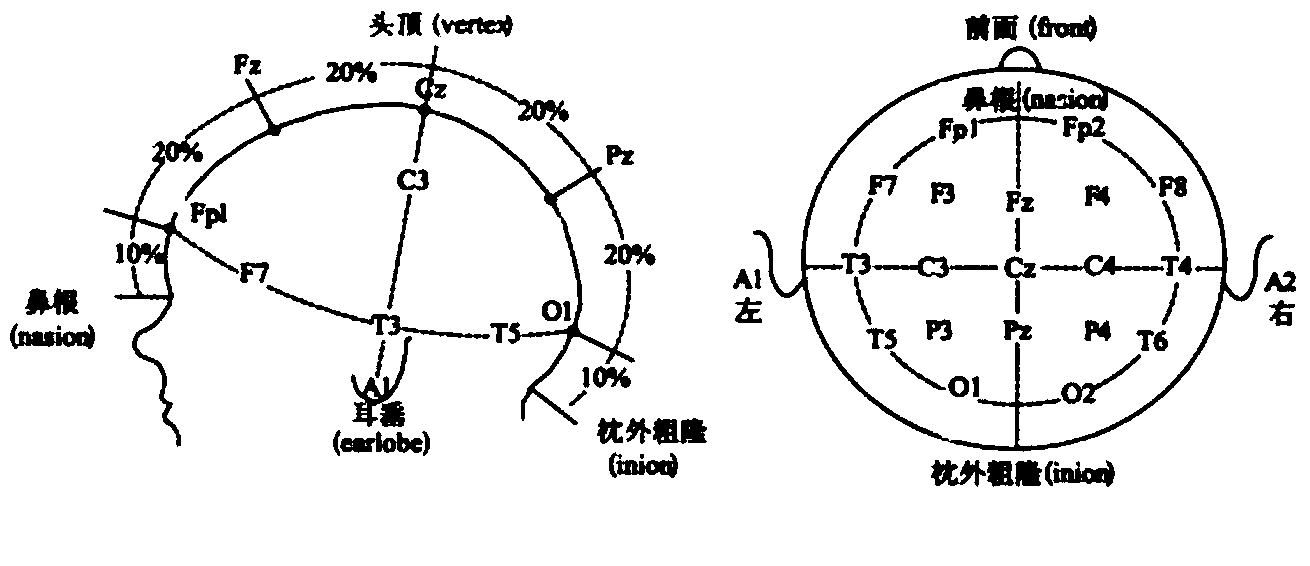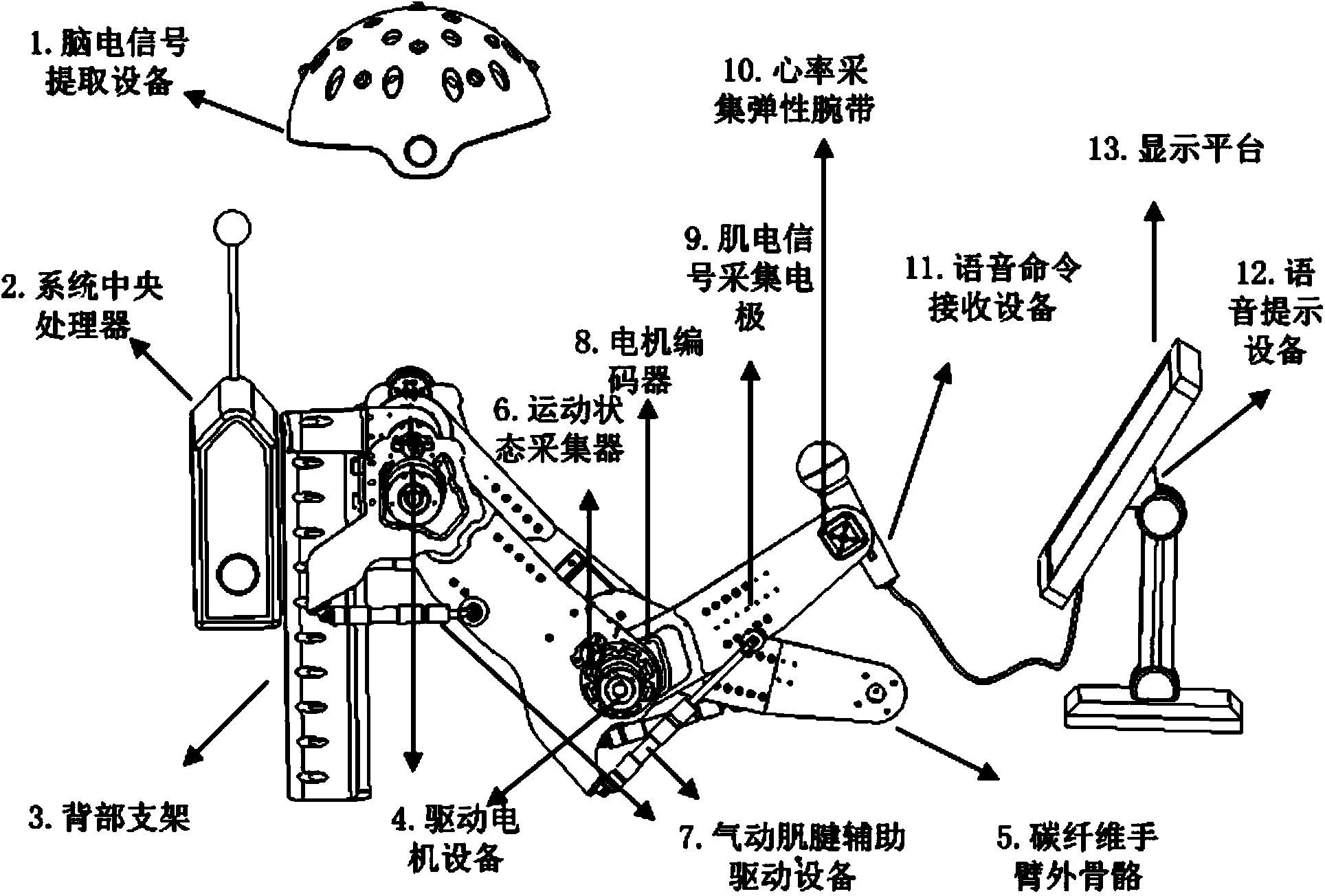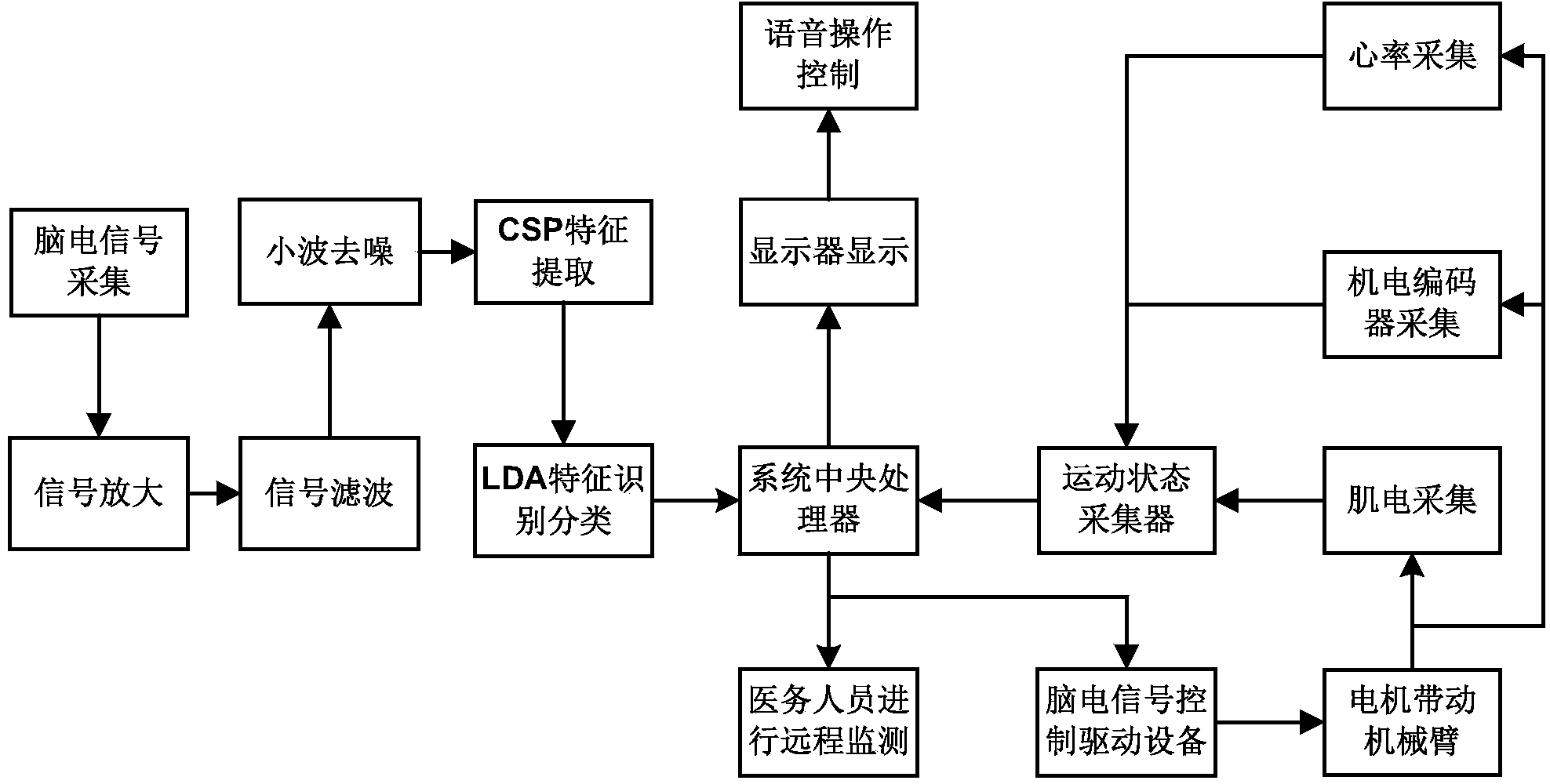Upper limb rehabilitation system based on biological signals
A biological signal, upper limb technology, applied in physical therapy, medical science, sports accessories, etc., can solve the problems of inaccurate EEG signal acquisition, weak EEG signal amplitude, and boring operation process.
- Summary
- Abstract
- Description
- Claims
- Application Information
AI Technical Summary
Problems solved by technology
Method used
Image
Examples
Embodiment
[0109] figure 2 It is a structural diagram of a specific embodiment of the upper limb rehabilitation system based on biological signals of the present invention.
[0110] In this example, if figure 2 Shown, a kind of upper limb rehabilitation system based on biological signal of the present invention comprises:
[0111] An EEG signal extraction device 1 is an EEG cap. The EEG cap is attached to the surface of the brain, and the EEG signal is sensed by the metal electrodes of the EEG cap. The built-in chip of the EEG cap amplifies the EEG signal, After filtering and denoising, the denoised EEG signal is converted into a highly recognizable digital signal through the CSP feature extraction algorithm, and the digital signal is classified by a classifier with an adaptive LDA classification algorithm to complete feature recognition. The digital signal of the EEG cap is directly converted into the driving command for controlling the driving motor device and the pneumatic muscle ...
PUM
 Login to View More
Login to View More Abstract
Description
Claims
Application Information
 Login to View More
Login to View More - R&D
- Intellectual Property
- Life Sciences
- Materials
- Tech Scout
- Unparalleled Data Quality
- Higher Quality Content
- 60% Fewer Hallucinations
Browse by: Latest US Patents, China's latest patents, Technical Efficacy Thesaurus, Application Domain, Technology Topic, Popular Technical Reports.
© 2025 PatSnap. All rights reserved.Legal|Privacy policy|Modern Slavery Act Transparency Statement|Sitemap|About US| Contact US: help@patsnap.com



